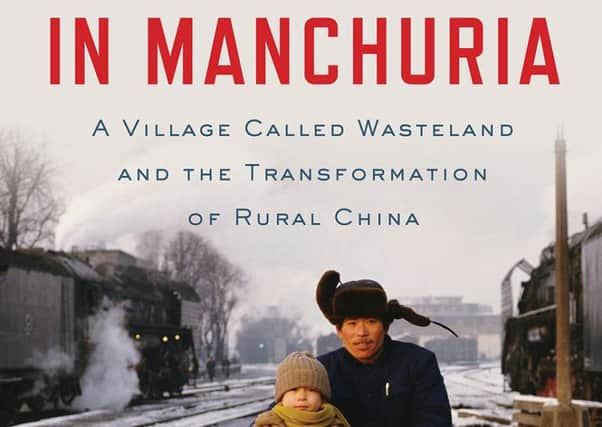Book review: In Manchuria by Michael Meyer


IN MANCHURIA
Michael Meyer
Bloomsbury, 384pp, £20
In Chinese, the region that was once the cradle of the mighty Qing dynasty is today rather prosaically known as Dongbei, the Northeast. Home to 110 million people, it has smoggy cities, bitingly cold weather, and can seem drab or worse to a visitor. But Michael Meyer has a more refined sense of history and poetry, and digs expertly beneath the region’s gritty surfaces.
His motivation for writing his book is simple. Since 2000, a quarter of China’s villages have died out, and before more of them did, “I wanted to experience a life that tourists, foreign students, and journalists (I had been, in order, all three) only viewed in passing.”
Advertisement
Hide AdHis book is part travelogue, part sociological study, part reportage and part memoir, but it is also a love offering to his wife, Frances, who grew up in the unfortunately named Wasteland, which he chooses as his base. His chapters alternate between recording daily life there and the broad historical canvas. In the process, he comes to terms with life with “no local newspaper, no graveyards, no plaques, no library, no former mansions or battlefields”.
Meyer’s first book was The Last Days of Old Beijing, a well-received portrait of daily life in a part of the city subsequently razed in the run-up to the 2008 Olympics. Wasteland, inhabited by just a handful of families, is a more difficult subject, and Meyer responds to that challenge with mixed results.
As in Last Days, he has found colourful locals to anchor his narrative, and capably captures the flavour of colloquial Chinese. Two residents seem especially noteworthy: the voluble Auntie Yi, a retired Communist loyalist and a bit of a snoop, and her taciturn brother San Jiu, who is rendered as the quintessential canny Chinese peasant.
But Meyer often strays from what is ostensibly his main subject, and even though the historical background is clearly necessary, much of the book reads like padding. Asserting that “perhaps no other region has exerted more influence on China across the last 400 years” than Manchuria also seems a bit of a stretch, and while it’s true that Japan and Russia are central actors in the history of Manchuria, to say that “uniquely for a Chinese region, foreigners played a prominent role on its stage” plays down the experience of Xinjiang and Tibet.
But when Meyer turns to the transformation of the Chinese countryside, he is able to use his experience in Wasteland to illuminate much larger trends. A commune in its early years, the village is, by the time he moves there, on its way to becoming a company town, yoked to a privately held enterprise called Eastern Fortune Rice. Founded in the late 1990s by the village chief’s former chauffeur, Eastern Fortune grows so rapidly that it is pushing peasants to give up their land and move into flats near the factory. By the end of the book, Eastern Fortune’s managers are even talking about renaming the village after the company.
As is so often the case in this book, San Jiu offers the most succinct assessment of the new situation. “Someone up here,” he says, raising his arm, “is always telling us down here what to do.” Meyer provides the unsaid subtext: “In feudal times, it was landlords. Then came cadres. Now there were managers.”
Advertisement
Hide AdMeyer also has a knack for noticing amusingly incongruous details, and he employs that talent to full effect to convey the contradictions of contemporary China. He sips “a cup of Marxism brand instant coffee (‘God’s Favoured Coffee!’ the package promised in English)”; notes that Harbin is a city with “a Wal-Mart bordering Stalin Park”; and, at winter’s peak, observes peasant girls who “belted out Lady Gaga songs” as they watched a basketball game in a frozen schoolyard, “tethered together with shared MP3 earbuds”.
After a year in Wasteland, Meyer was ready to move on, but his interlude in Manchuria clearly taught him many lessons, perhaps the most fundamental being this: “The countryside was romantic only to people who didn’t have to live there.”
FOLLOW US
SCOTSMAN TABLET AND MOBILE APPS